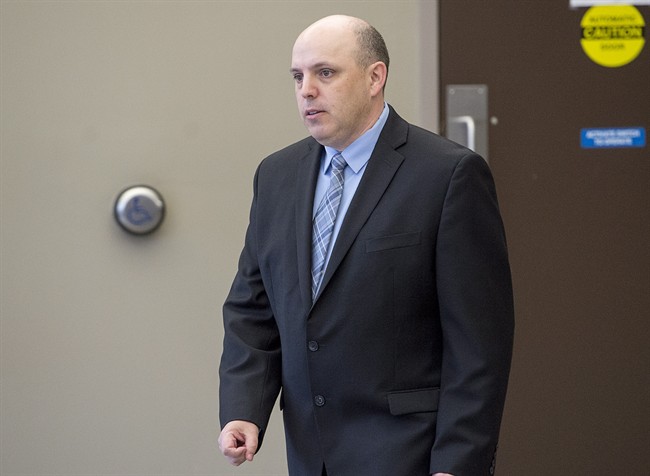A former navy officer who alleges he was discriminated against by the military based on his sexual orientation has had his appeal dismissed by the Federal Court of Appeal.

Paul Ritchie was appealing a Federal Court decision made last year to dismiss his application for a judicial review of a decision by the Canadian Human Rights Commission (CHRC).
Ritchie did not appear in court for the March 2017 hearing and the court decided to rely on Ritchie’s and the Crown’s written submission.
READ MORE: Gay former navy officer in court to request review of discrimination claim
In the recently released decision, Justice Andre FJ Scott said three issues had to be determined: whether new evidence — a chain of emails exchanged with the Attorney General of Canada’s (the respondent’s) counsel — could be introduced as evidence, whether the previous federal judge had erred in finding a decision by the CHRC was reasonable, and whether the judge erred in finding the CHRC had not violated Ritchie’s procedural rights.
The two other judges that made up the court, Yves de Montigny and Judith M. Woods, agreed with Scott’s analysis.

Get breaking National news
The evidence was not accepted, as the decision found it “has no bearing on the outcome of this case,” and that the evidence “is not practically conclusive for any issue under appeal.”
The court also rejected Ritchie’s allegation the CHRC decision was unreasonable based on “numerous factual errors” in the investigator’s report. It said that incorrect facts or vague ones cannot “on their own” result in finding that a decision is unreasonable.
- Quebec premier calls on Bloc Québécois to help topple Trudeau government
- Americans can now renew passports online. Canadians are still waiting
- Pablo Rodriguez quits Trudeau cabinet to seek Quebec Liberal leadership
- Telus call centre workers in Ontario facing ‘extreme stress’ as they fight Quebec move
The ruling found that the CHRC investigator had to conduct a thorough and neutral investigation, but that “absolute perfection” was not the standard, and that the investigator met that standard.
READ MORE: Gay firefighter wins compensation for abuse on Halifax military base
Ritchie had alleged that one error found he had been released from service with the Canadian Forces “at his own request,” when he alleged he was released because of his homosexuality. However, the record shows Ritchie had applied for a voluntary release in June 2011, but then tried to withdraw the request in July of that same year.
He was eventually released at the end of his mandatory service period in 2012.
The appeal court’s decision also dismissed the allegation Ritchie’s procedural rights were violated, including not being given an adequate opportunity to respond to the CHRC’s findings, stating he had been given two chances to present submissions and when he did, he submitted a response under the total amount of pages allowed.
“I cannot conclude that the appellant suffered a prejudice as he had the opportunity to present his most compelling arguments in his submissions,” the ruling stated.
The CHRC report found that, as the military admitted, Ritchie was at times treated differently.
The report by the CHRC alleged Ritchie overheard a commanding officer refer to him as a “faggot” when speaking to another officer and that the Canadian Armed Forces submitted that the incident was non-corroborated and never reported to them at the time.
It also found even in cases where Ritchie was treated differently, there was no conclusive evidence it was because of his sexual preference.
— With files from The Canadian Press








Comments